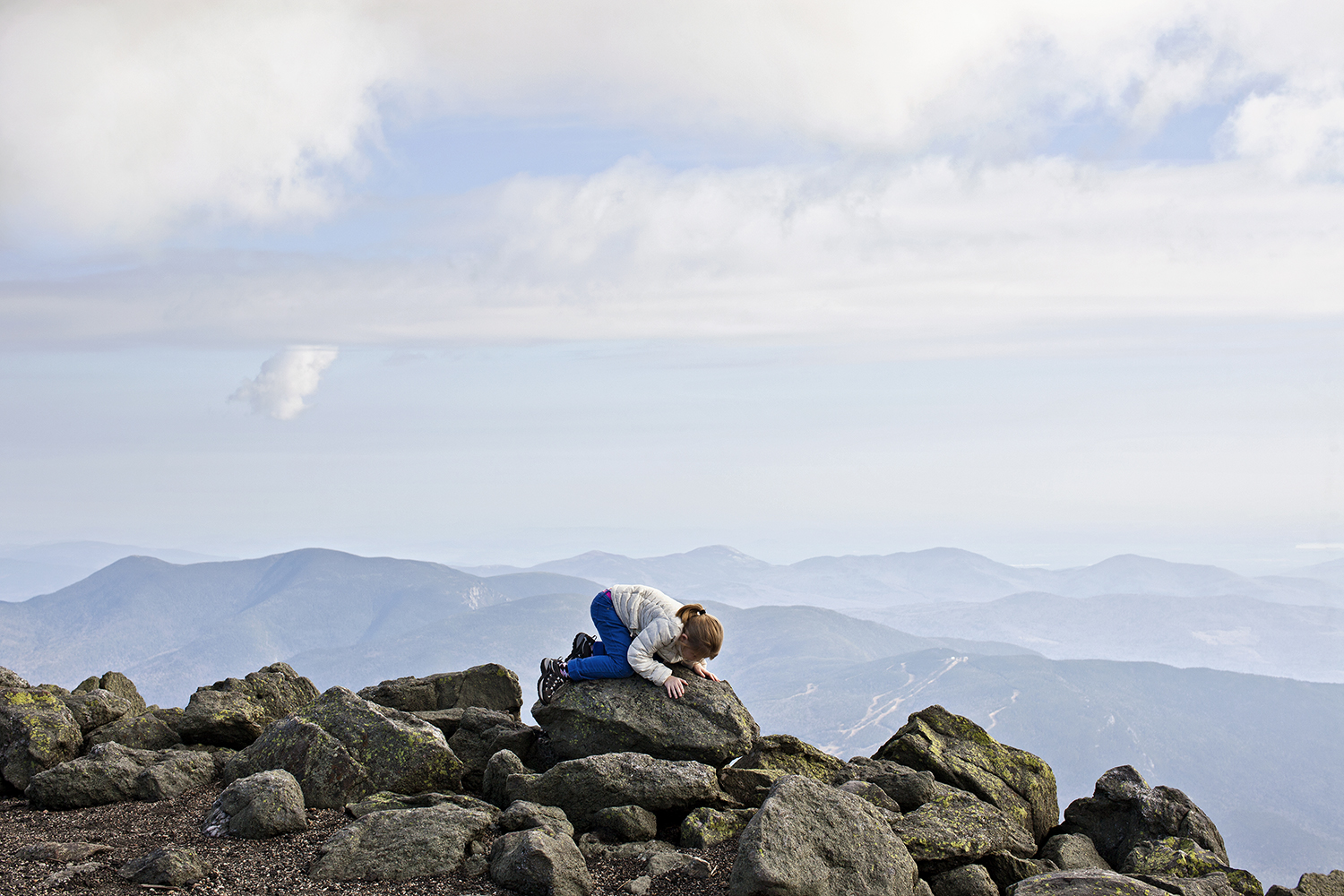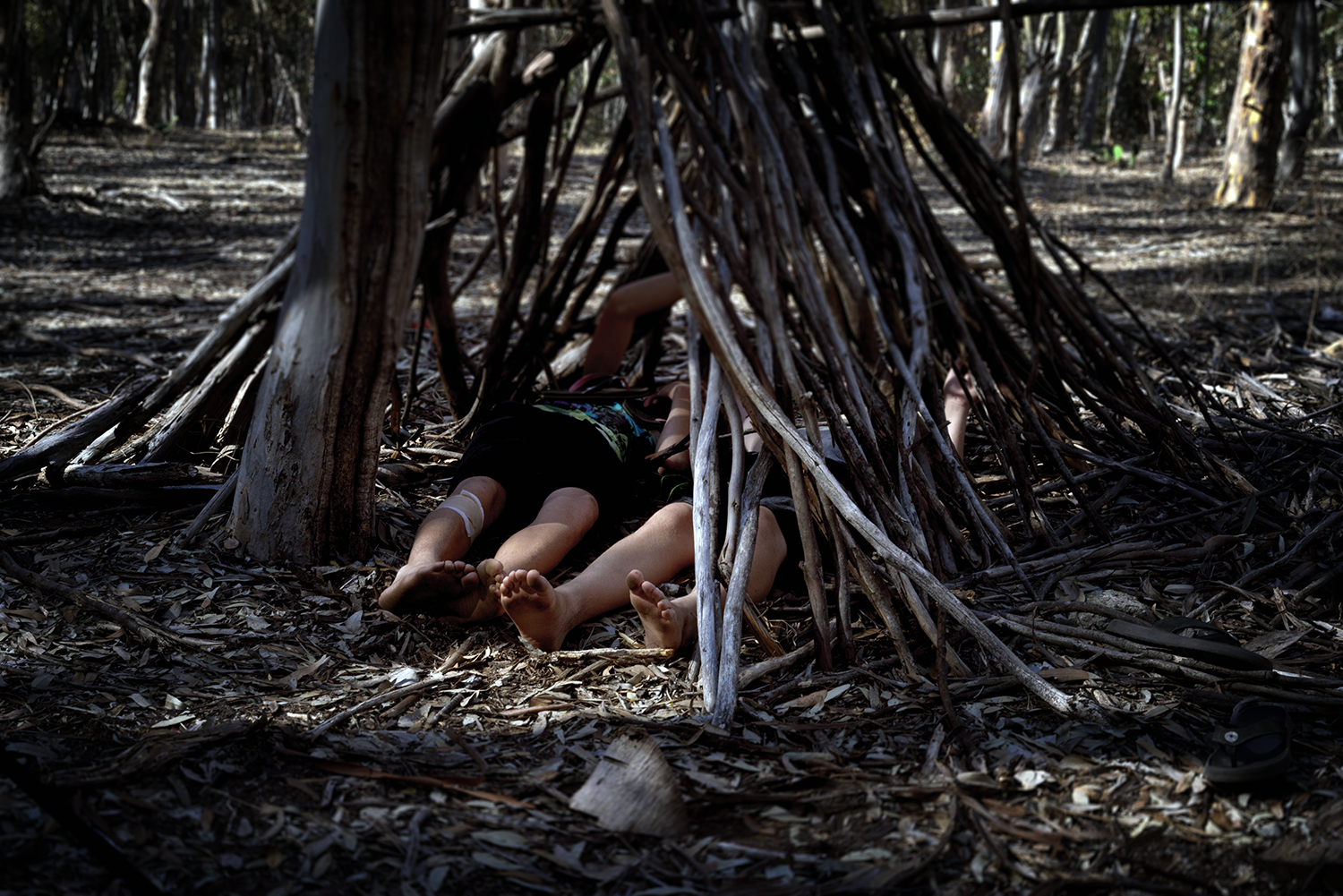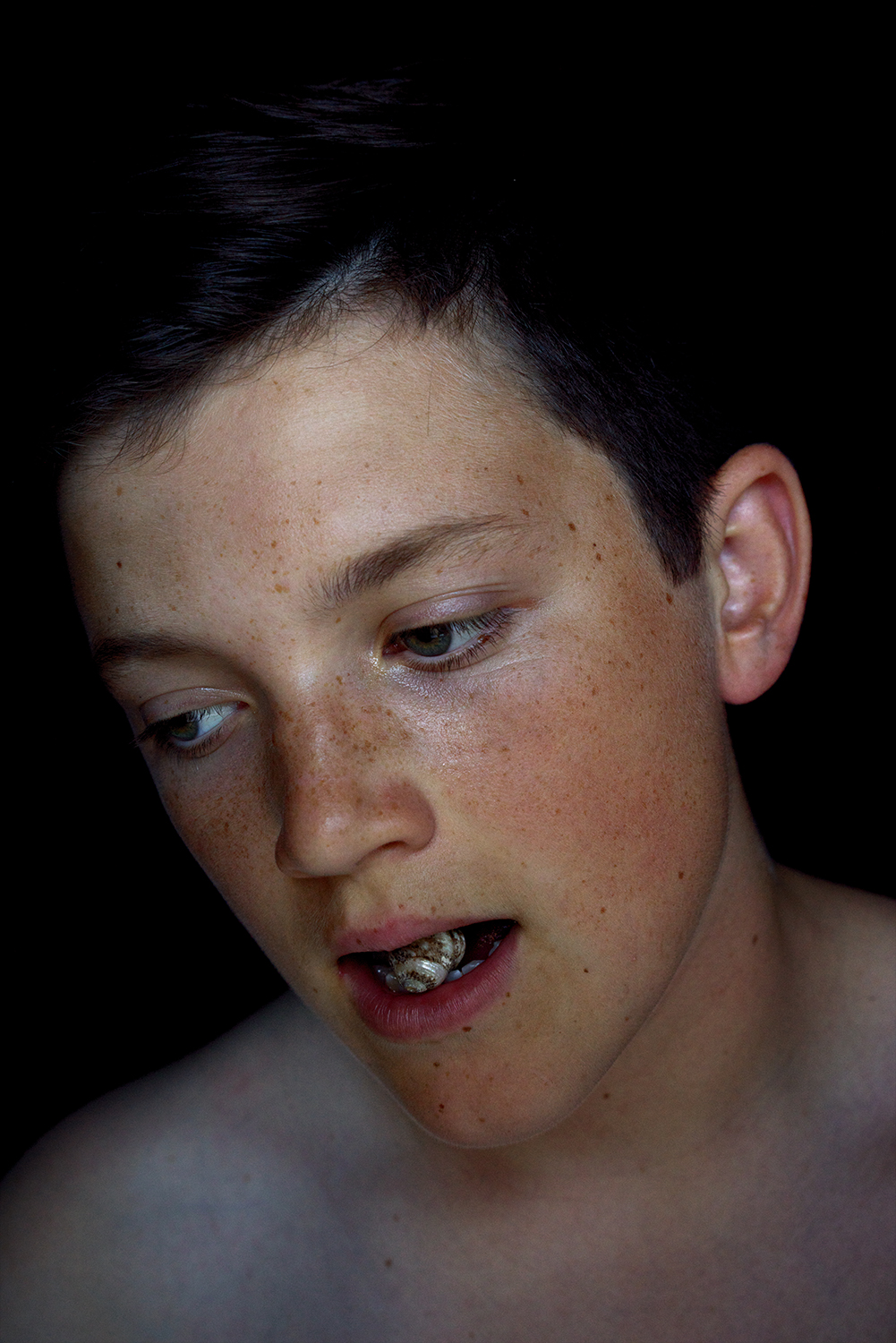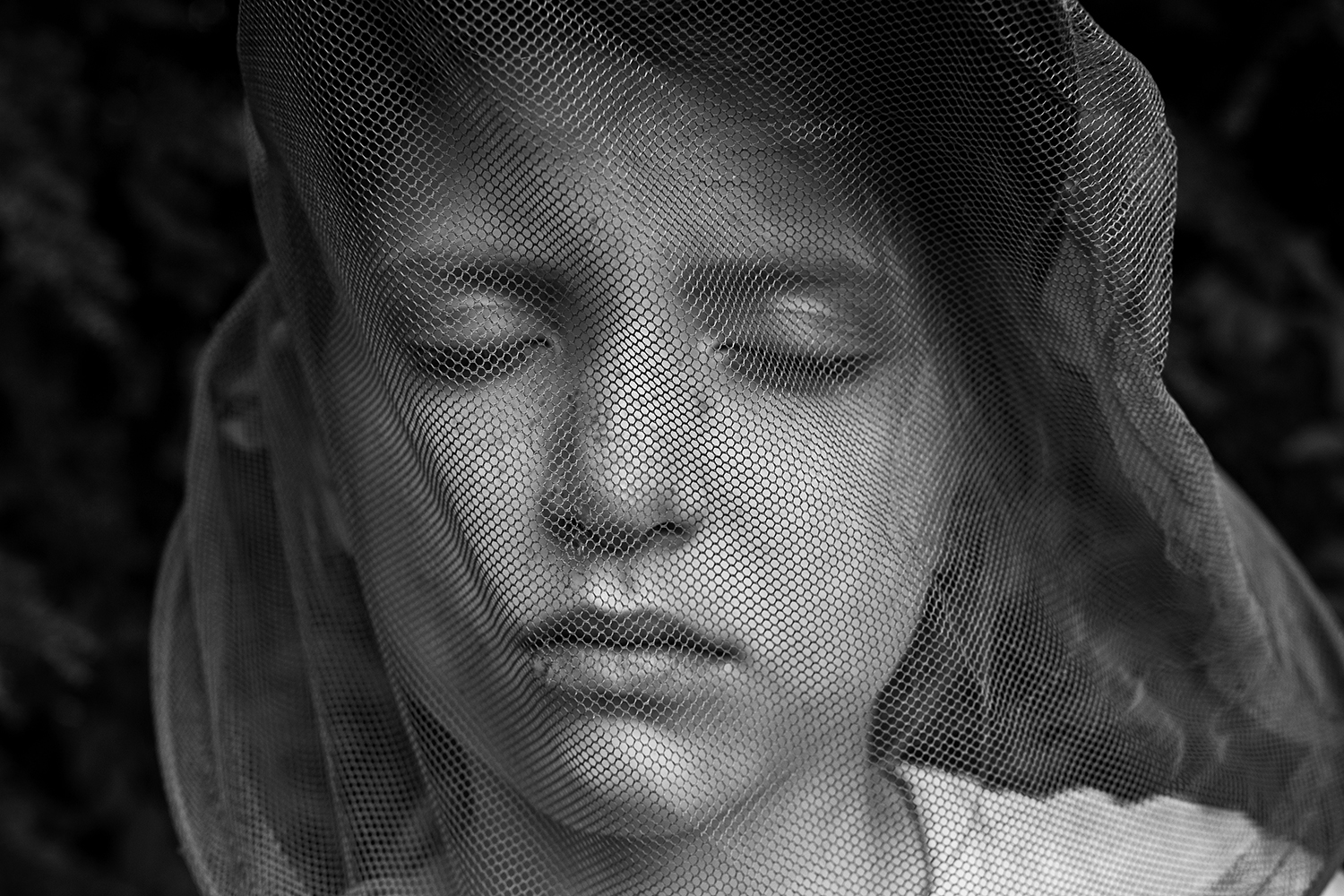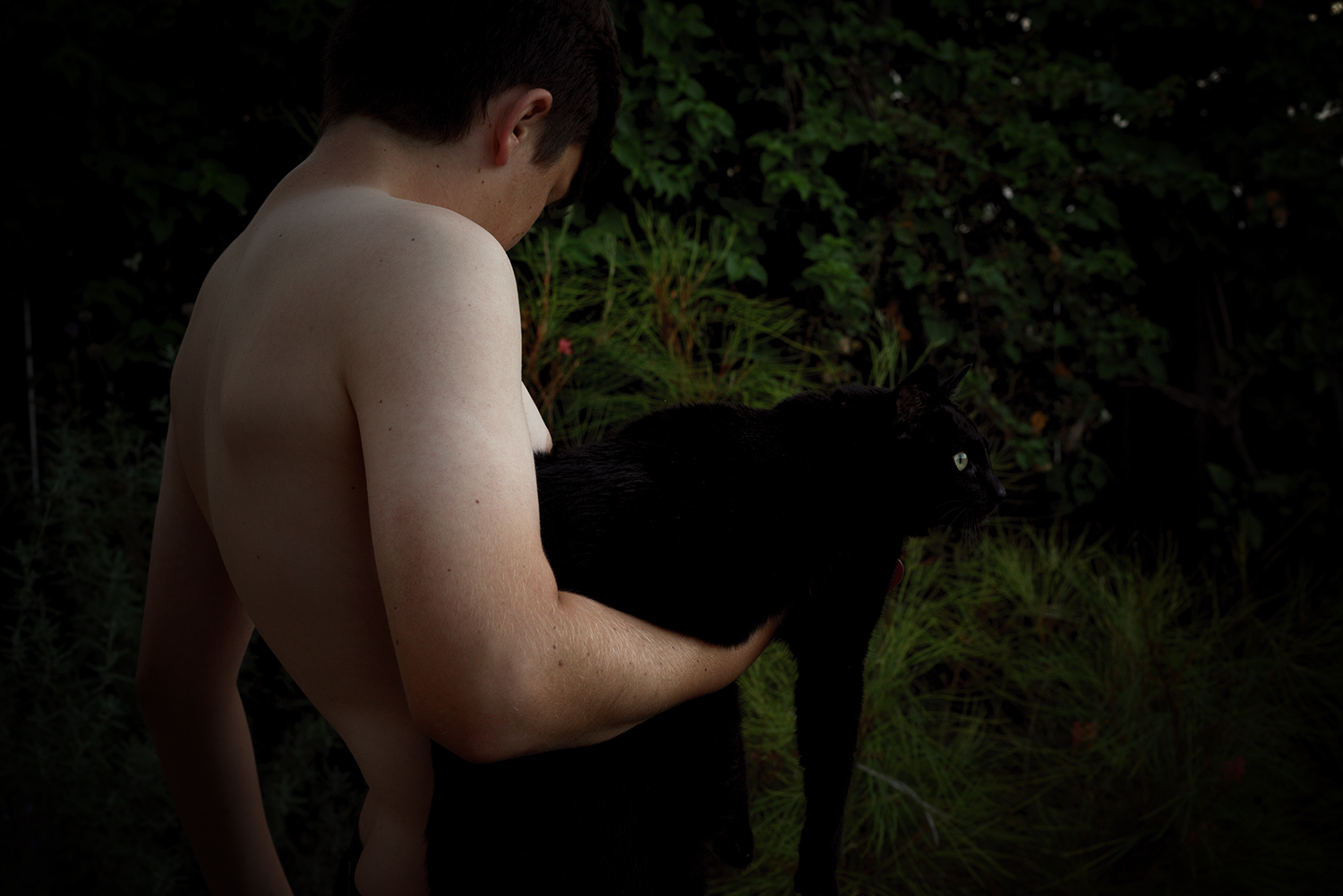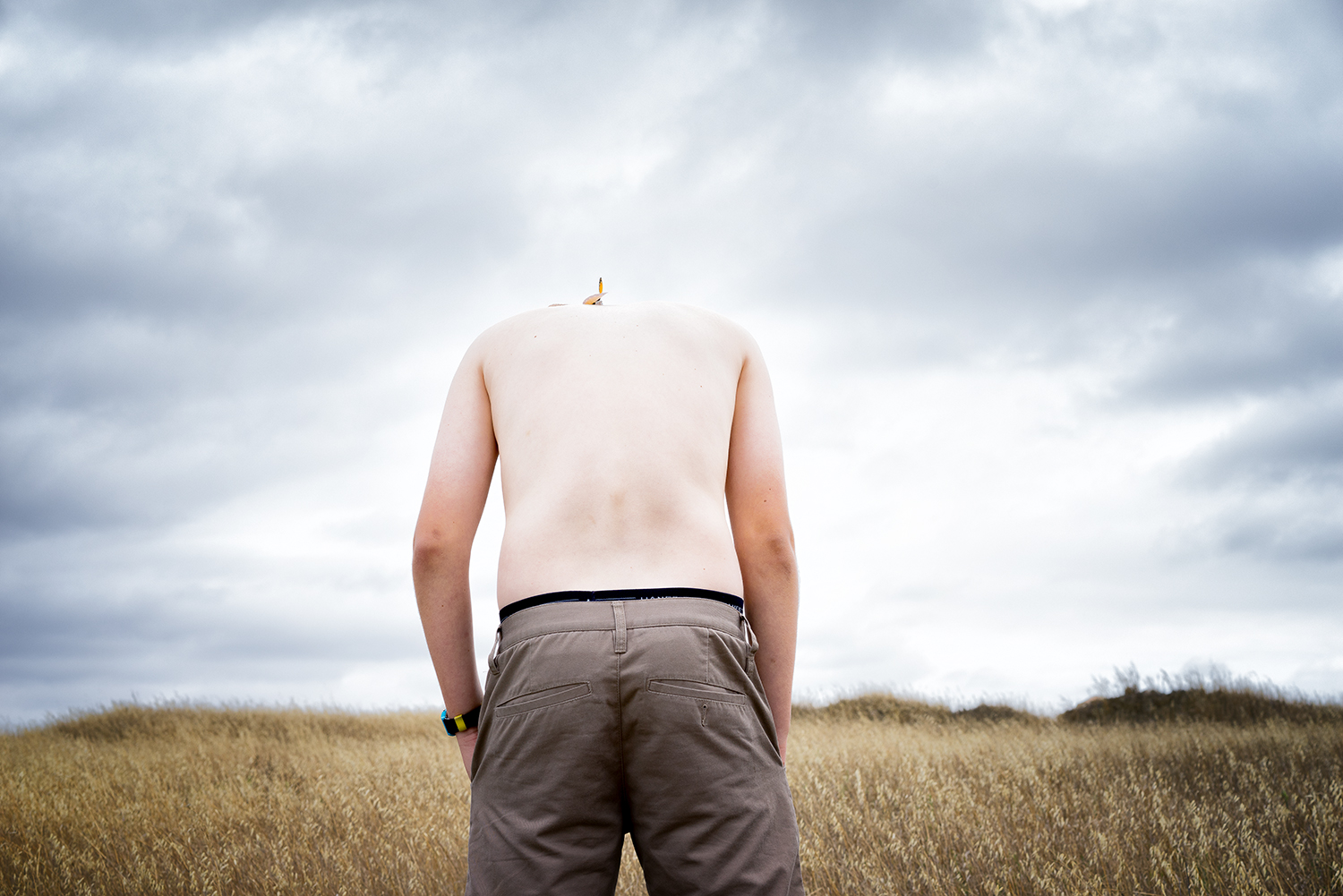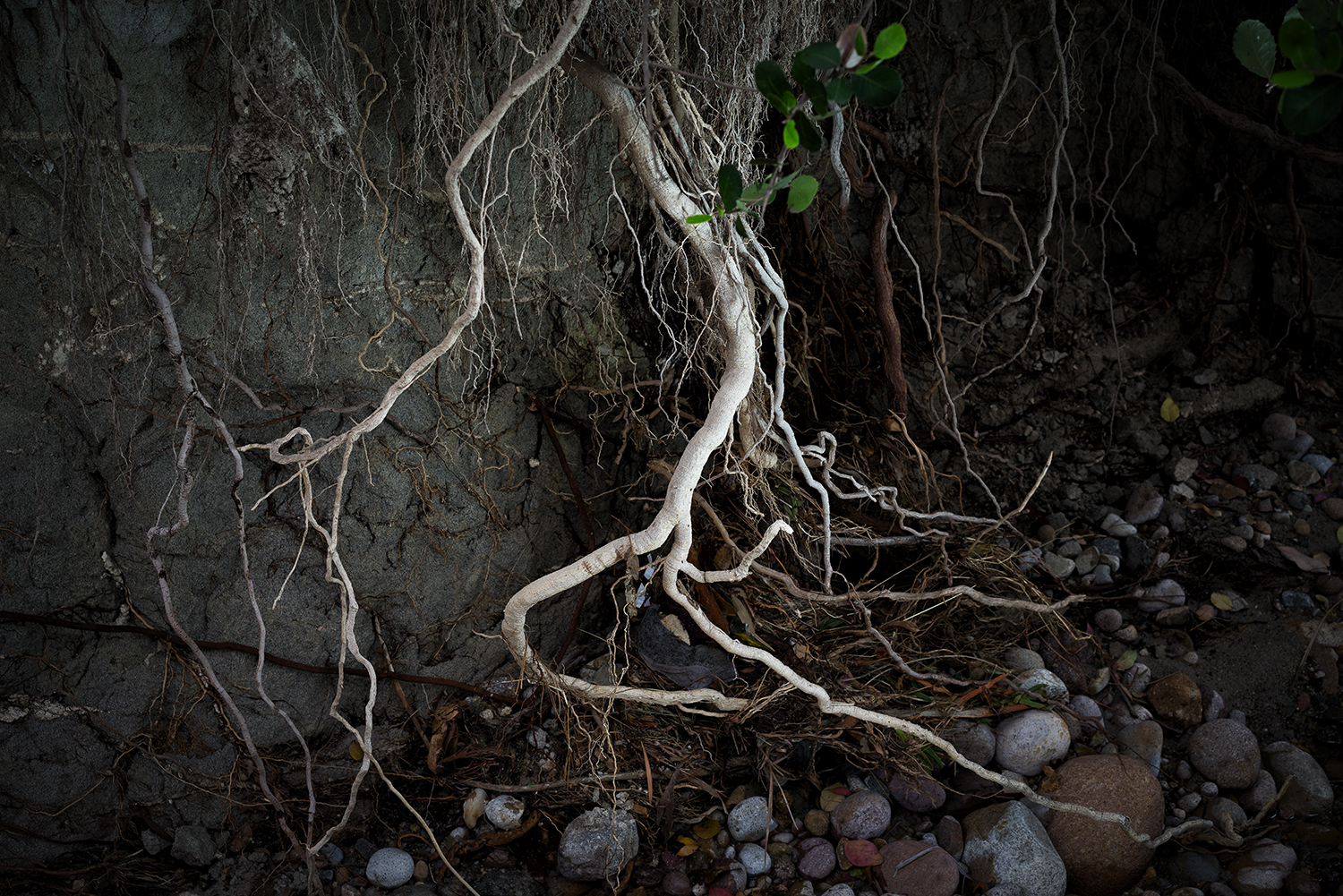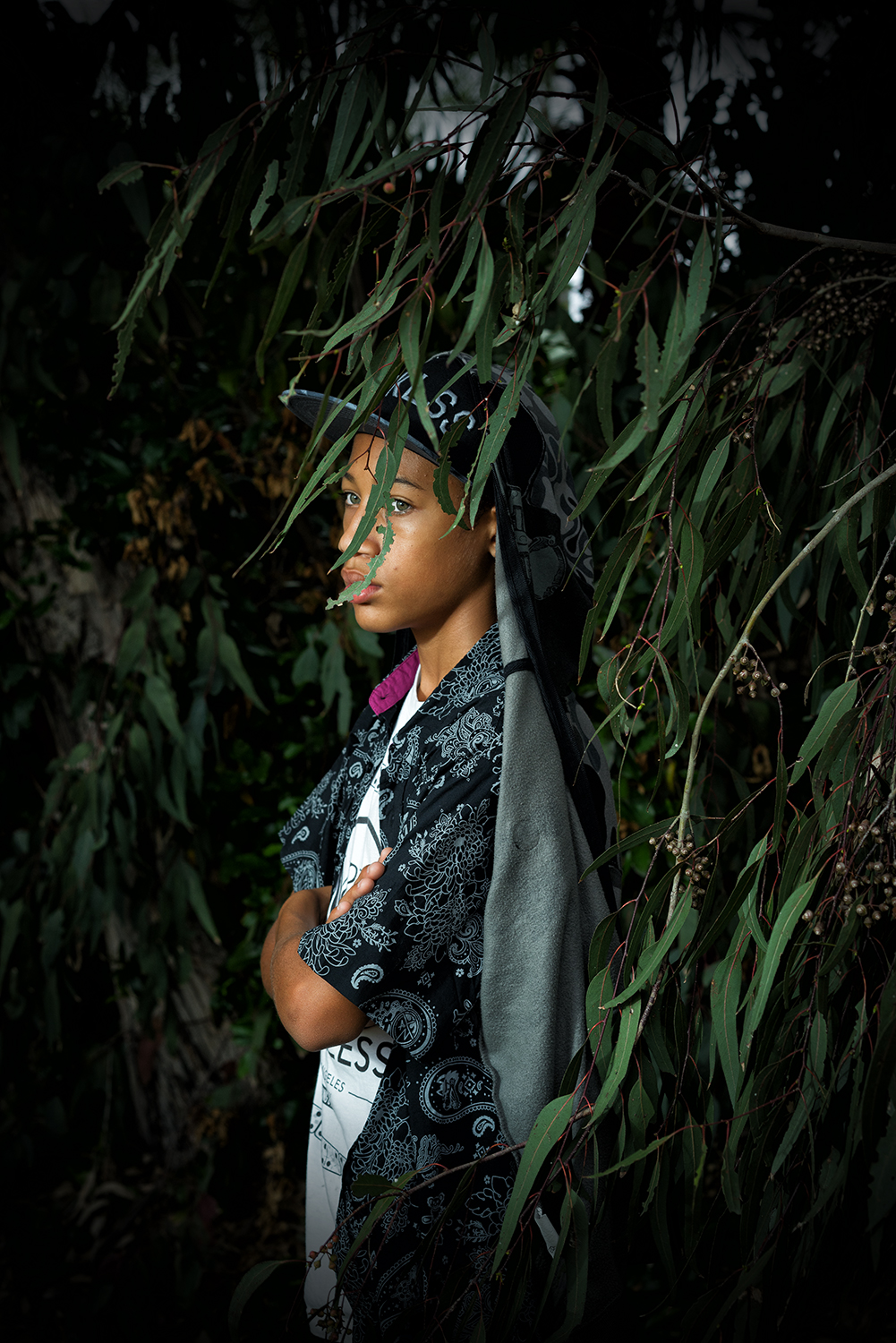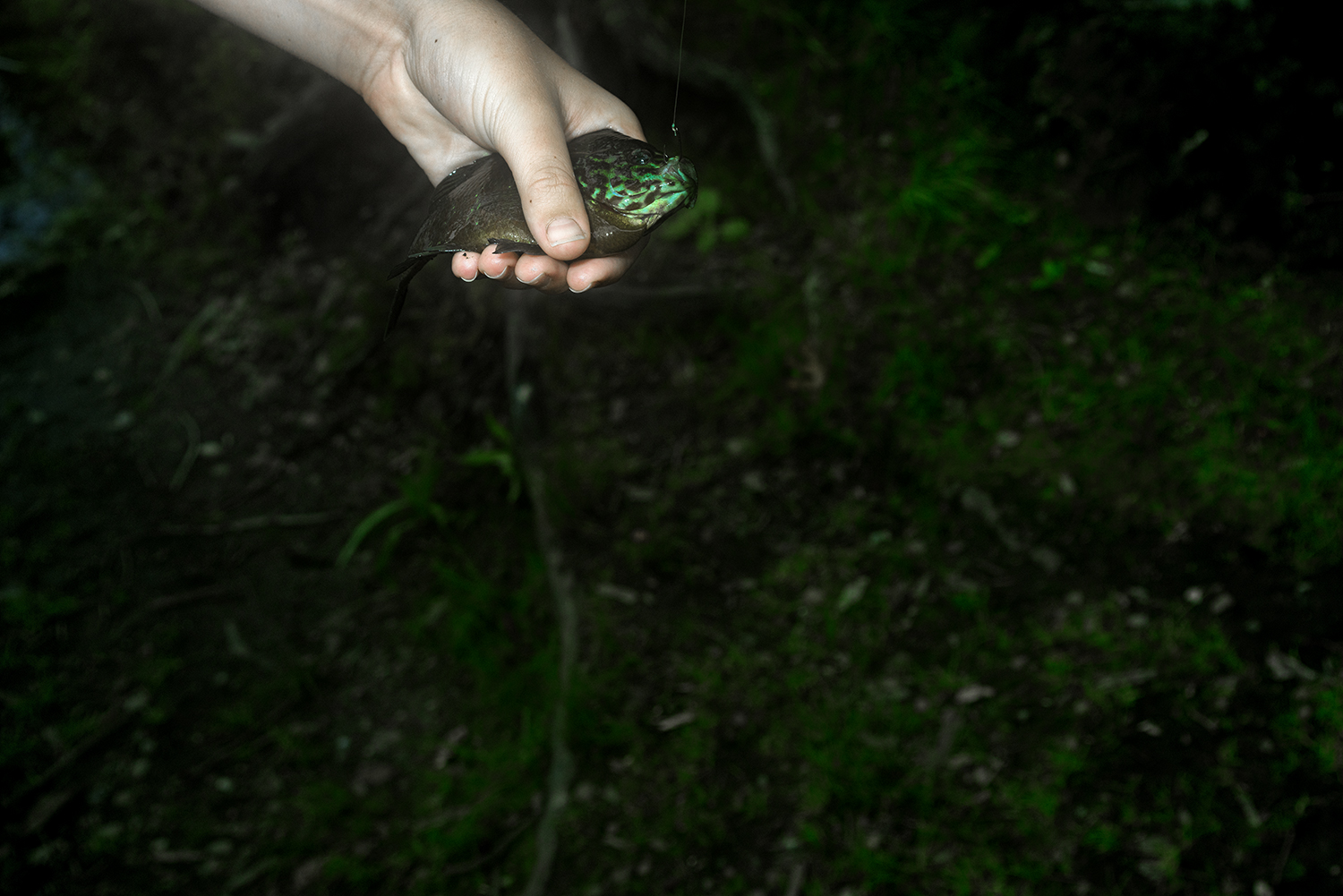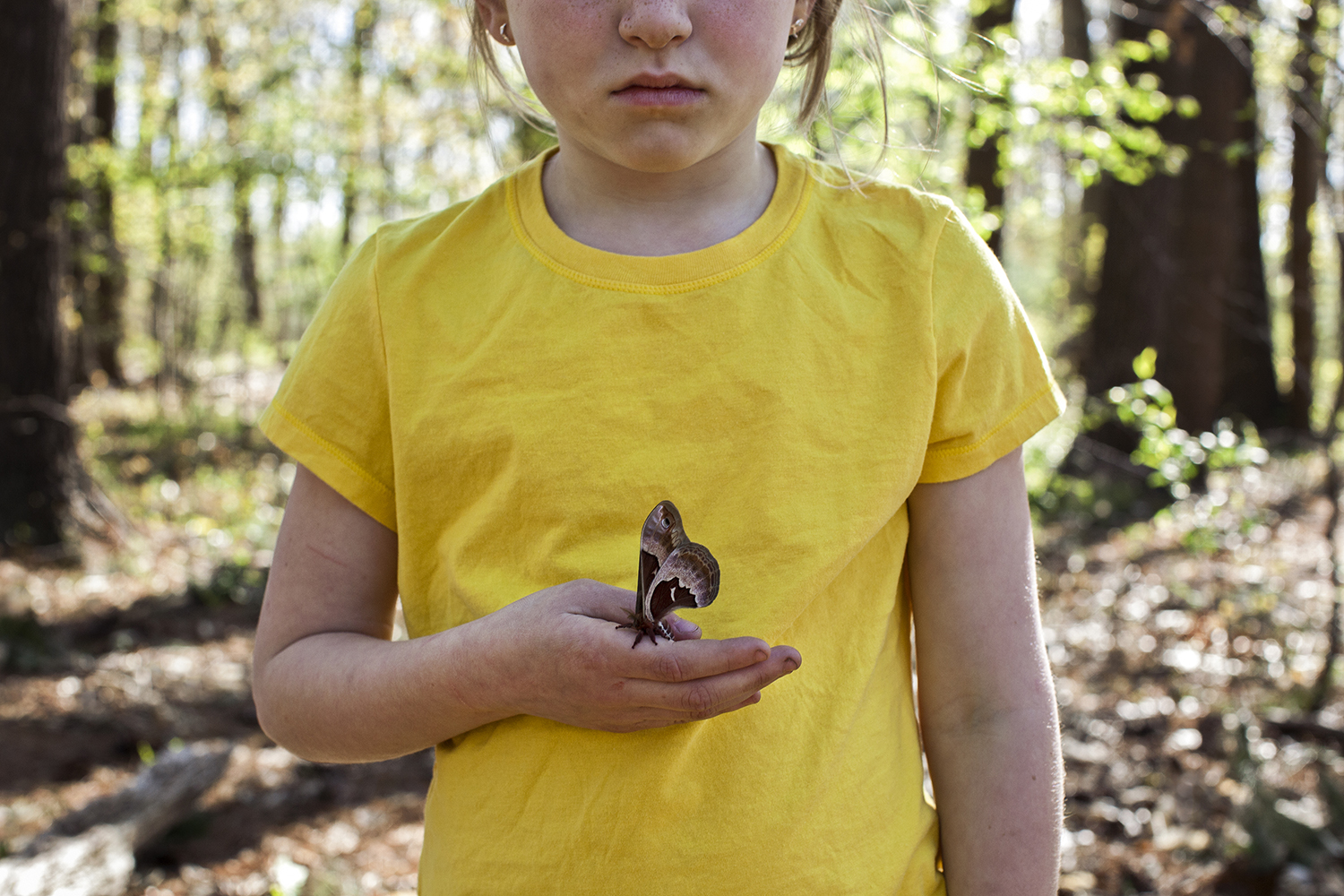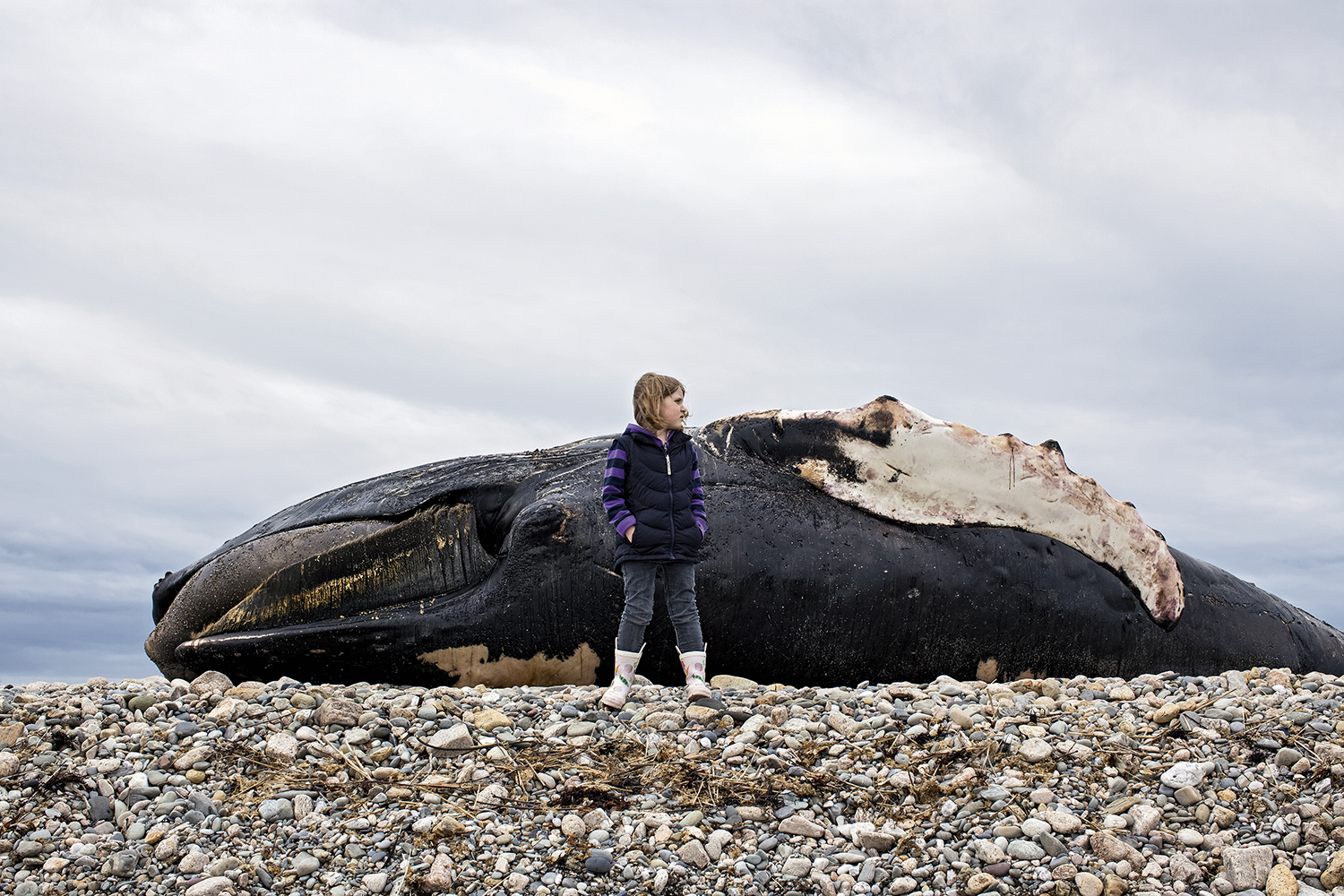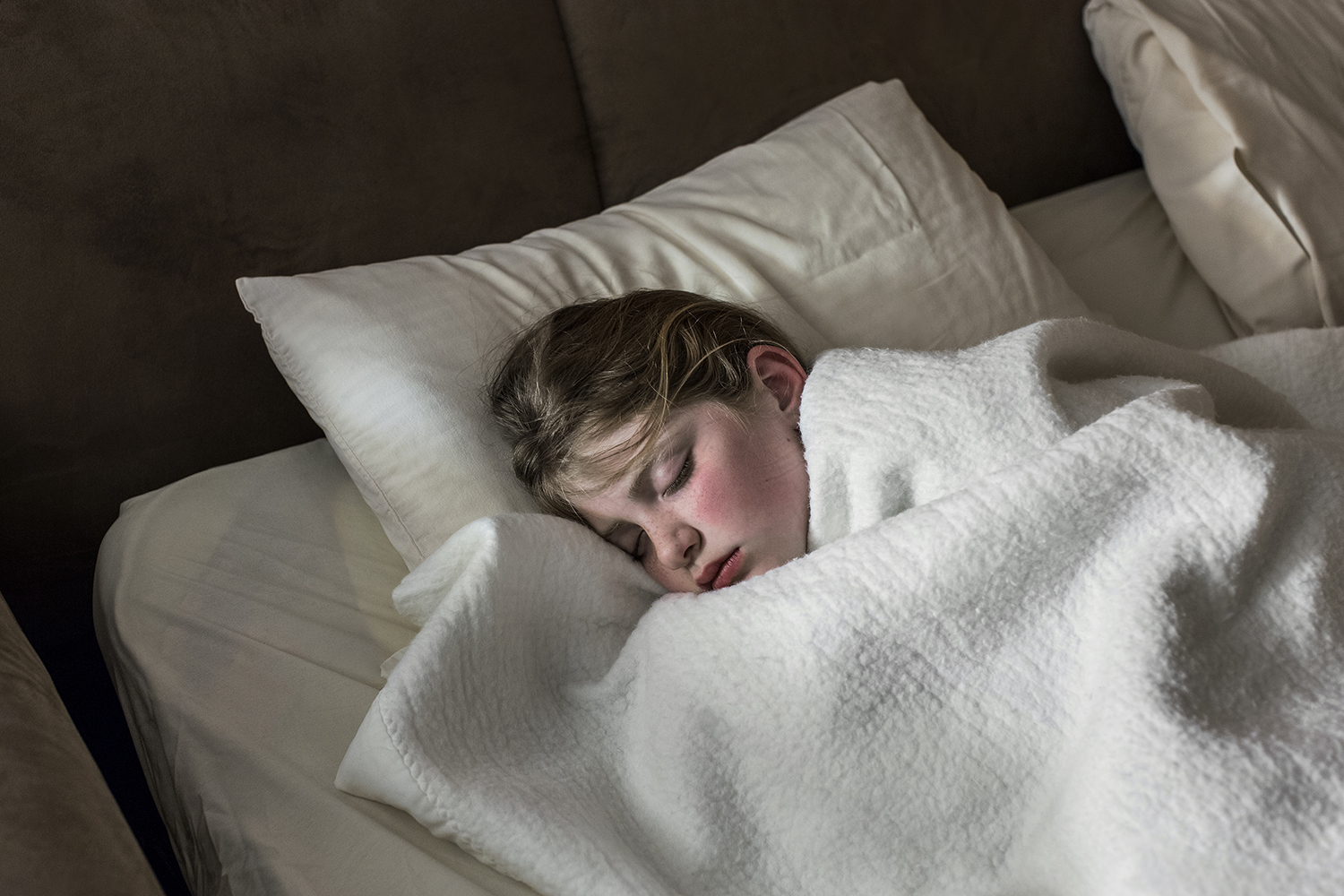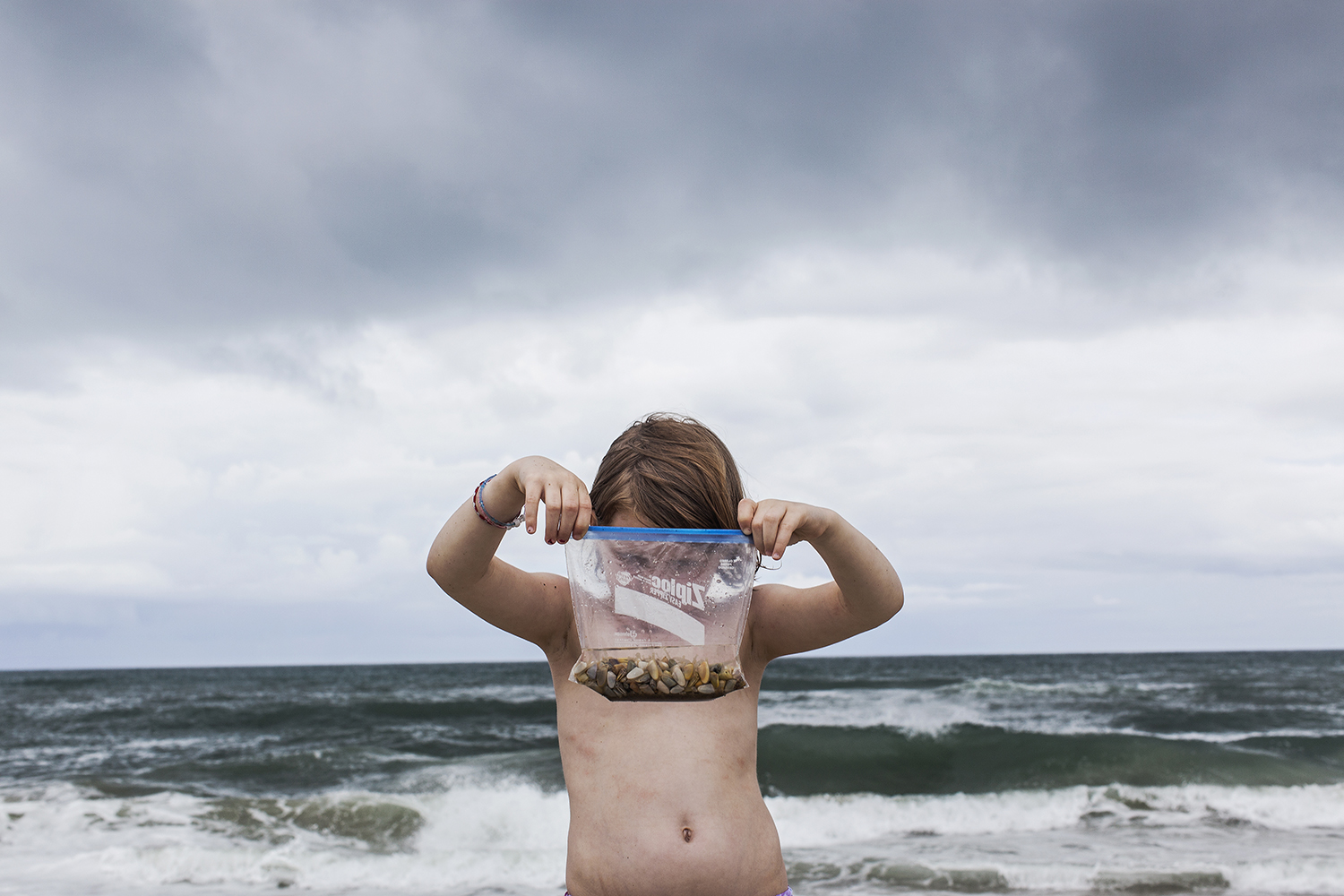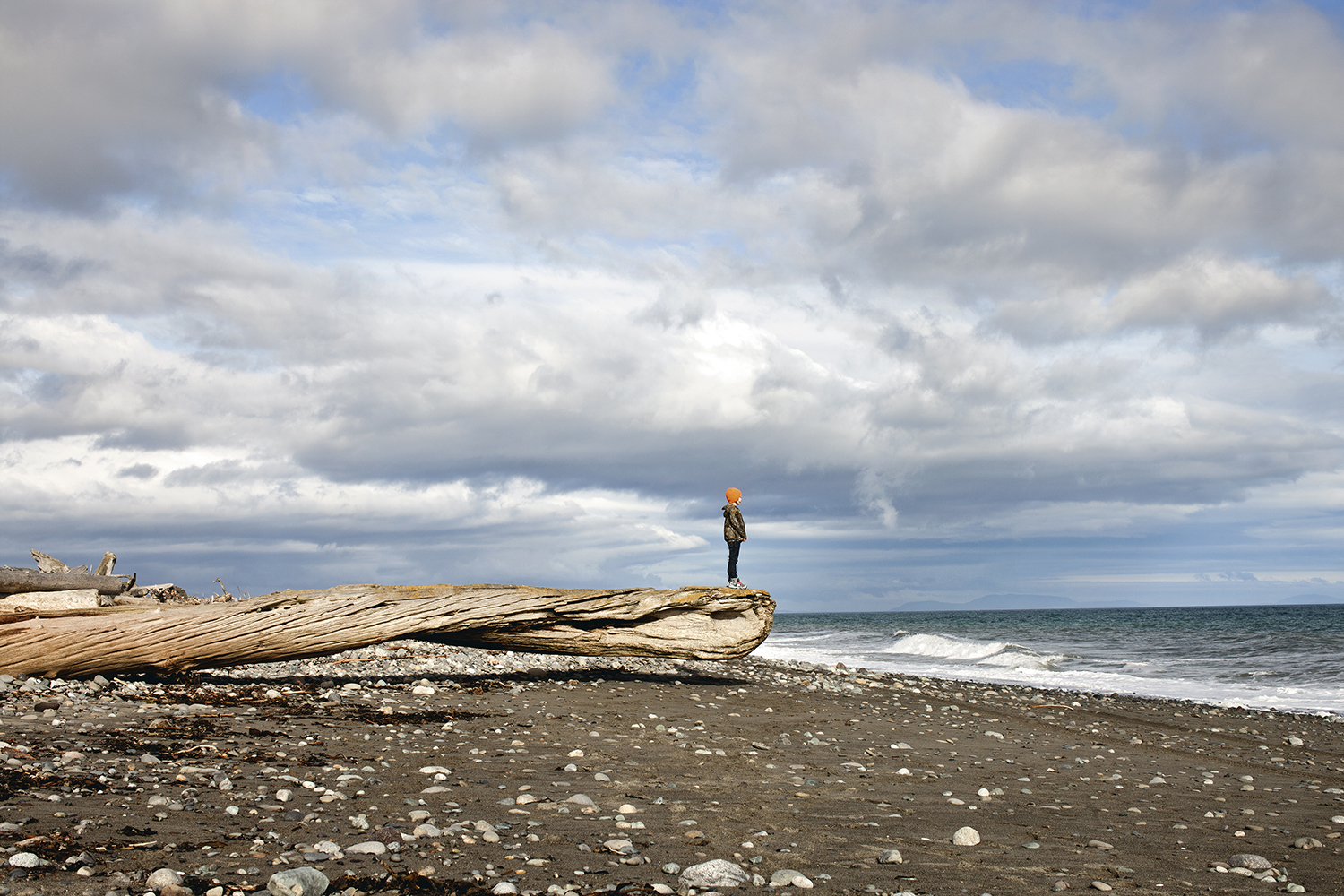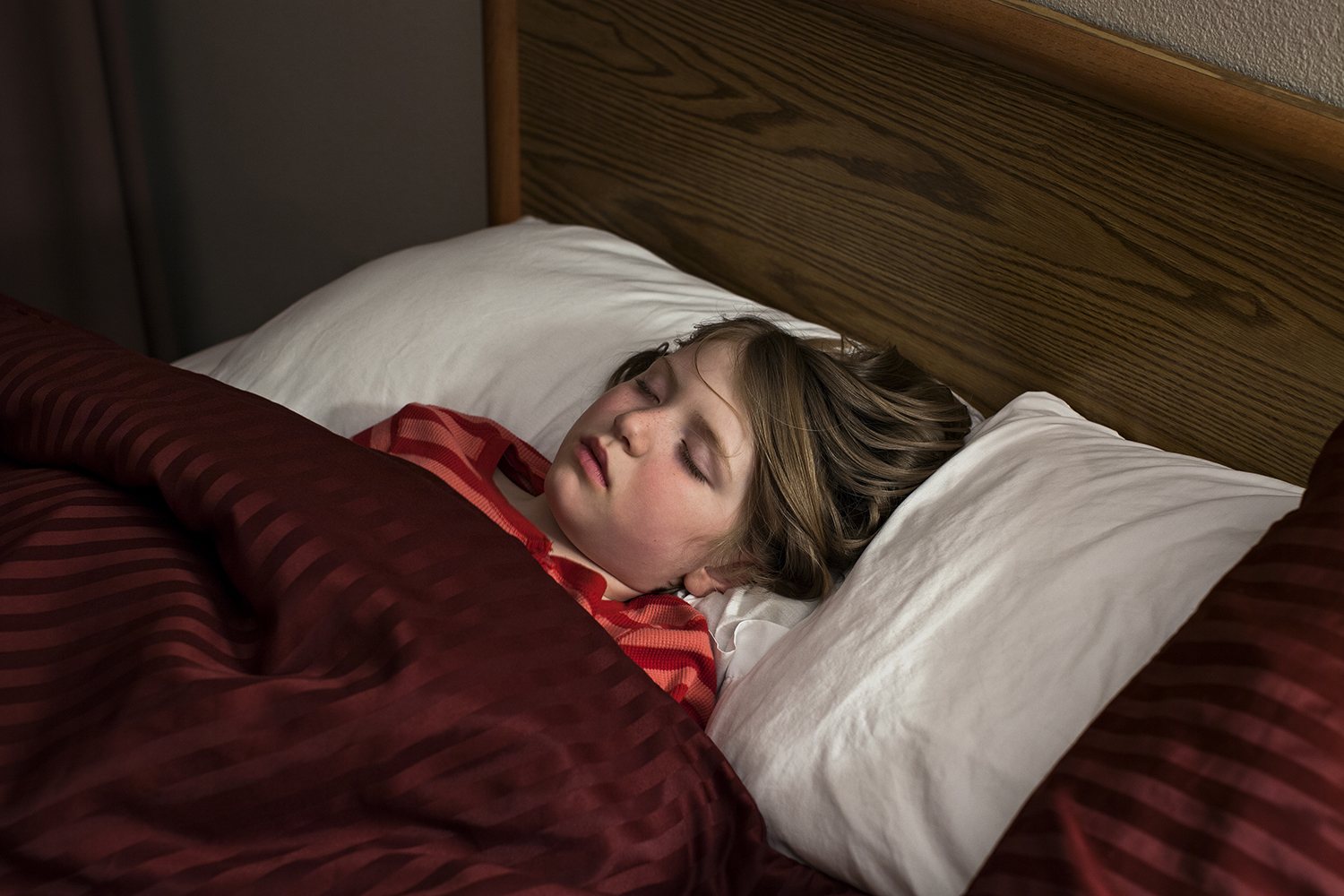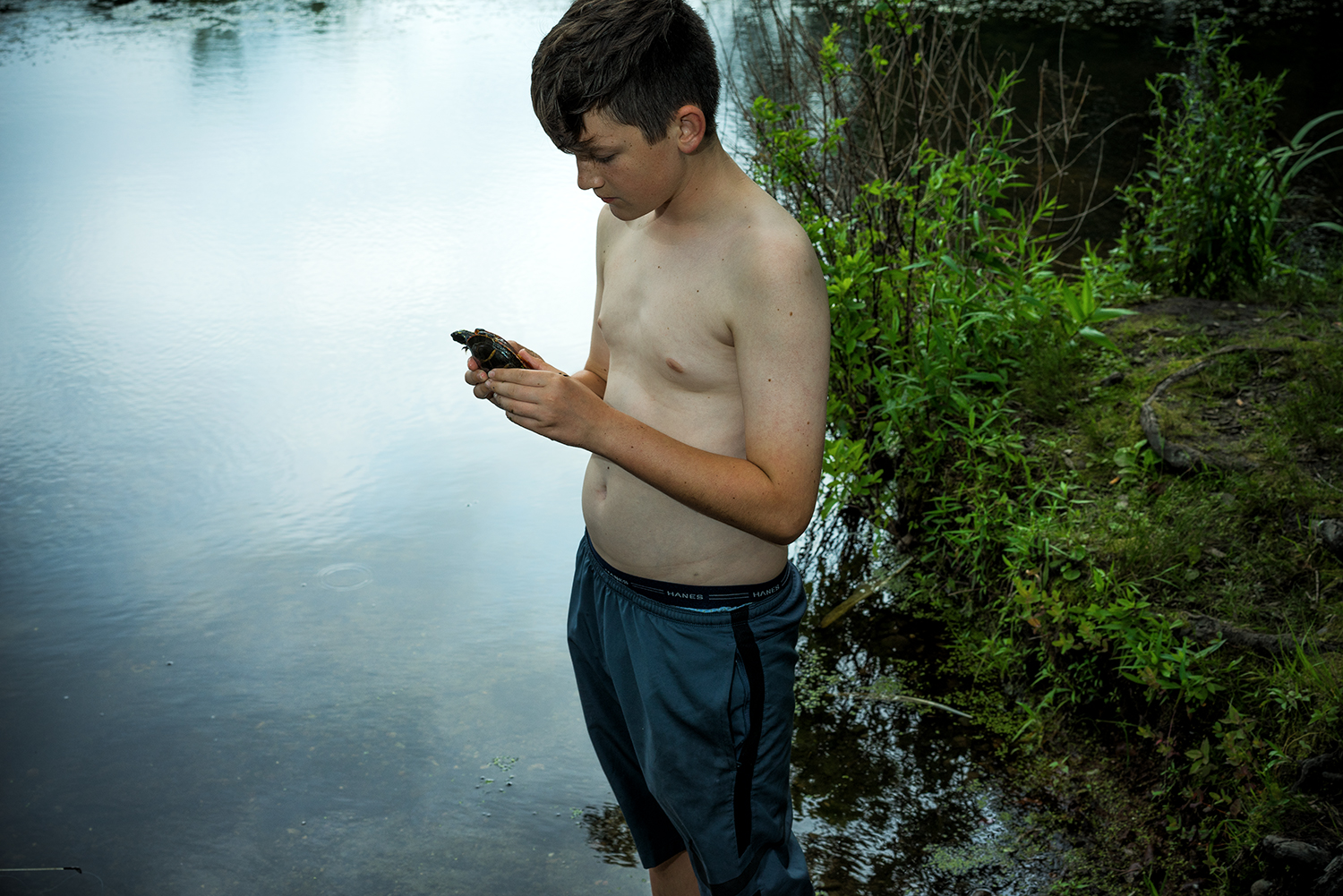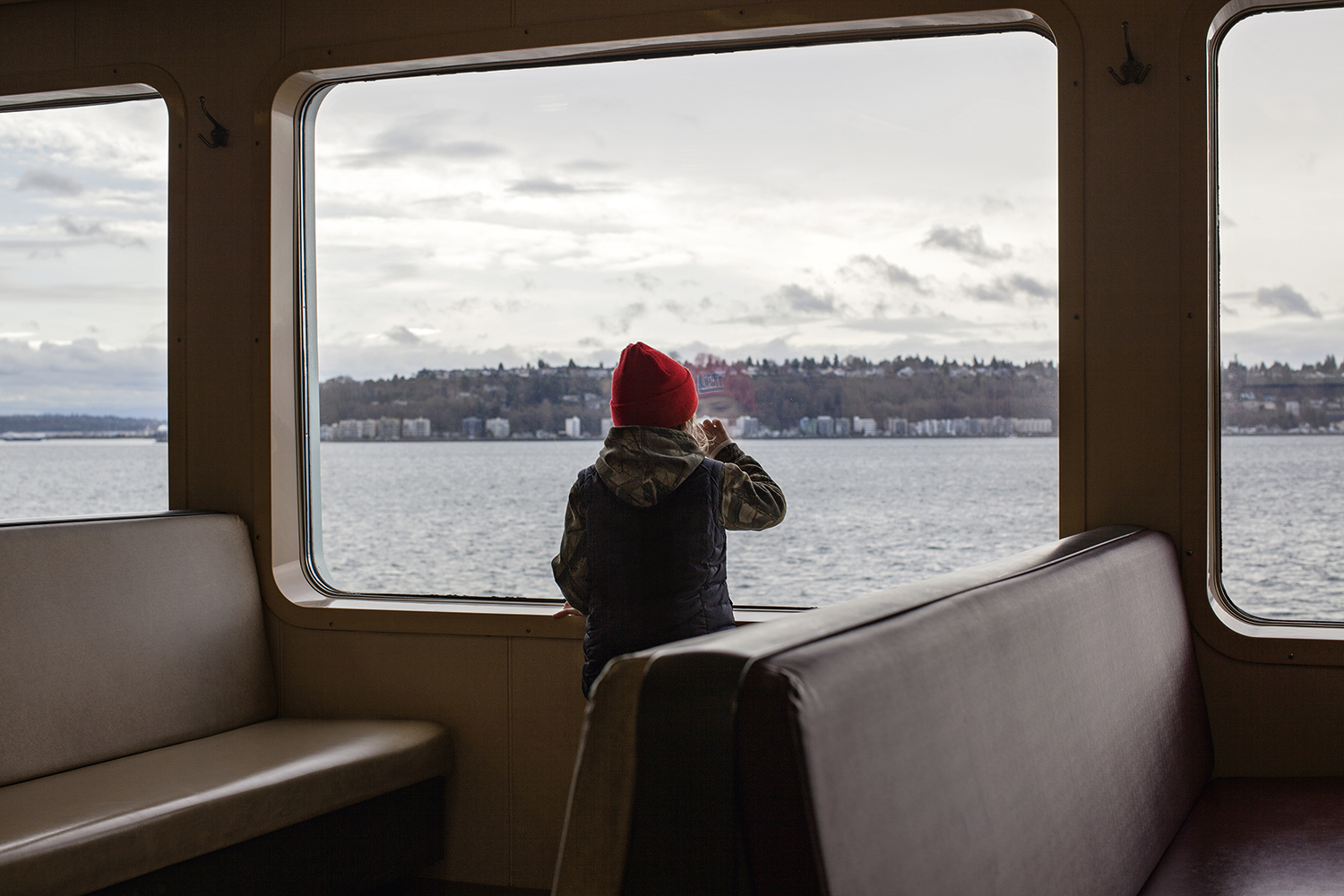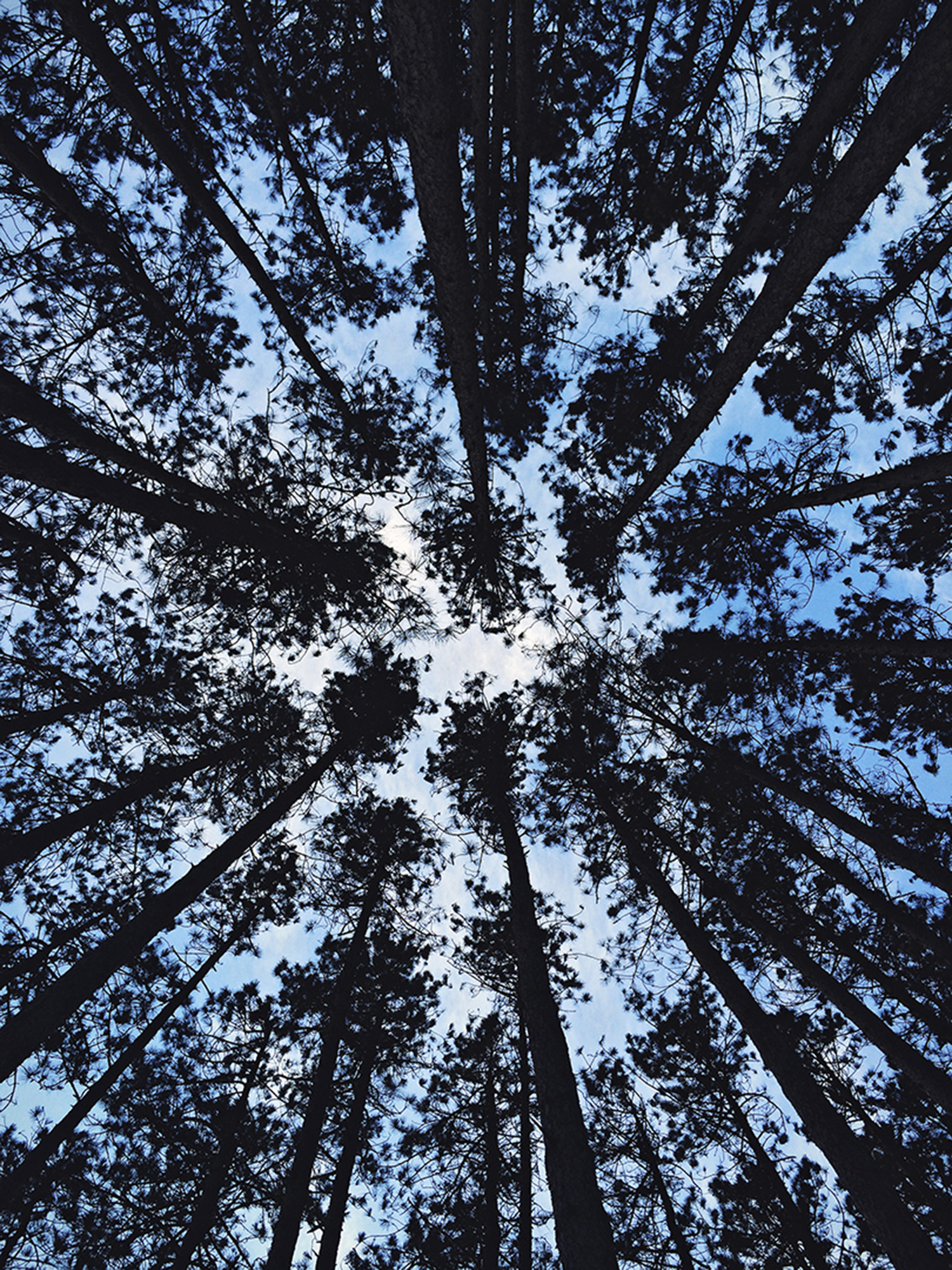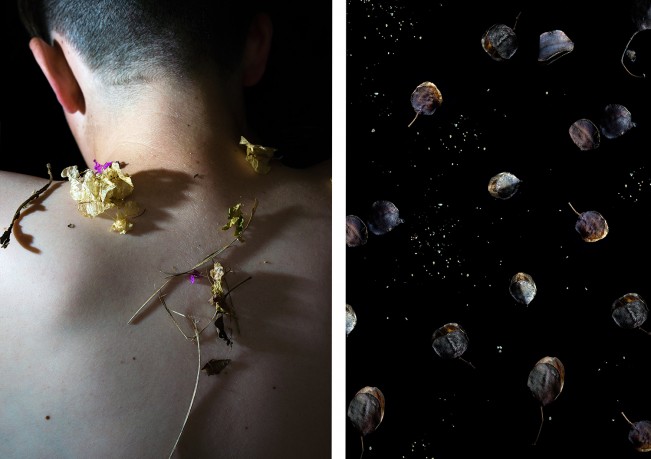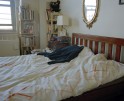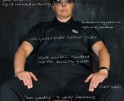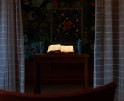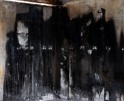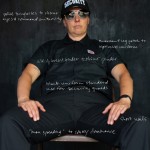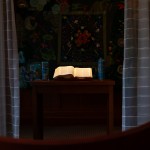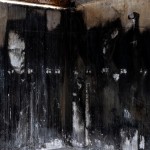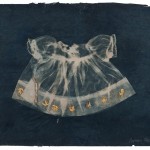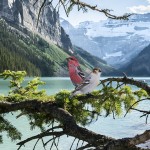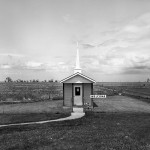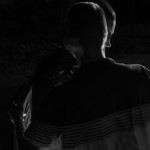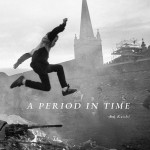Rebecca Webb and Jesse Burke: Sticks of the Sun, Ashes of the Night
Some time back, photographer Rebecca Webb came across Jesse Burke’s photographs of his project, Wild and Precious where he examines and encourages a connection between his daughter and nature. Rebecca realized that she was exploring the same territory with her son in her project, Mother: Nature and reached out to Jesse to begin a conversation. That conversation continues in the exhibition, Sticks of the Sun, Ashes of the Night, centering around the tenuous relationship between young people and the biosphere, alternately documented and authored by the photographic work of both artists. Opening at the at San Diego Art Institute on Saturday, January 16, the exhibition runs until Sunday, February 7.
Jesse’s images are derived from a series of road trips taken with his daughter—larks meant to impart his idea of an essential education; one that revolves around appreciation and respect for the vistas they encountered and gestures toward a worldview that encourages her to integrate the complexity of her own interconnectivity.
Rebecca’s ambivalence toward her adolescent son’s over-reliance on electronic media serves as the impetus to her interrogation into the ostensible dichotomies of technology and nature. Using the technology of the camera, Webb unearths a fabled narrative in which her son’s mediation between these margins opens a gateway to a different kind of intimacy with our tools, our environment, and each other.
Rebecca Webb lectures in film production media and photography at UC San Diego. Her fine art photography work is exhibited in galleries in Boston, New York City, San Diego and various museums nation-wide. Webb has worked on documentaries and feature films with directors William Klein, Darren Arronofsky and Hal Hartley, to name a few. Complementing her love of photography, Webb explores the future of film going and filmmaking. In her role as film curator for ArtPower at UC San Diego, she inaugurated the Filmatic in April 2014, a festival dedicated to visionary artists who work across multiple disciplines and are pushing boundaries in film and video through digital technologies.
Mother: Nature
To pull the curtain back on my son’s early teen-hood, would be to reveal him at his computer rigorously engaged in a world of electronic gadgets. I must admit, I too, spend a lot of time on my smartphone and tablet. Yet shouldn’t we be spending more time experiencing nature? I know this inherently, and can turn to science to back this primal knowledge: recent studies reveal the importance of connecting with the natural world, beginning in the early years, to ensure social, emotional, and physical health.
Children’s fears and misconceptions about the natural environment develop when they have very little actual contact with living things and obtain most of their attitudes through their experience of electronic media. Studies have shown that children expressed anxiety and ambivalence rather than appreciation or enjoyment towards various aspects of the natural environment. There is actually a name for this fear: “Biophobia.”
Within the space of a few decades, the way children understand and experience the natural world has changed dramatically. Even as teenagers become more aware of global threats to the environment, their physical contact and intimacy with nature is fading. Urban, suburban, and even rural parents cite a number of reasons why their children spend less time in nature than they themselves did, including disappearing access to natural areas, and competition from television and computers.
In the images I’ve created, I’ve sublimated my impotent frustrations over my son’s desire to constantly be tethered to his phone or to play video games by reframing his activities in a context of forests and fields, not sitting at his computer. Here I present a quasi-fabled version of my son’s childhood that speaks to underlying fears of the natural world; anxieties that come about as a direct result of competing technological experiences over being outdoors, and urban planning that has left out communal safe spaces for kids to explore and connect with nature.
Jesse Burke divides his time between personal art projects and commissioned work. A New England native, he currently lives in Rhode Island with his wife and their three daughters, Clover Lee, Poppy Dee, and Honey Bee. He received his MFA from Rhode Island School of Design, where he is a faculty member, and his BFA from the University or Arizona. Jesse’s work deals with themes related to vulnerability and identity, as well as human’s complicated relationship with nature. Daylight Books will publish his monograph, Wild & Precious, in October 2015. His work has been exhibited in galleries and museums in the U.S. and abroad including The Haggerty Museum, the Perth Center for Photography, the Tucson Museum of Art, the Print Center in Philadelphia and the Lishui Photo Festival in China and is held in many private and public collections including the Museum of Contemporary Photography Chicago, Museum of Fine Arts, Houston, the North Carolina Museum of Art, and the Rhode Island School of Design Museum. Jesse was recently named one Time Magazine’s top 50 US photographers to follow on Instagram.
Wild & Precious
The woods are blanketed in blackness, a subtle reminder of how small and fragile we are. The fire crackles as embers float from the flames and mix with fireflies as they spiral into the sky. I sit here listening to the crickets sing you to sleep and wonder if you’re dreaming of salamanders or sunsets. We’ve been roaming all day and long into the night, out in the feral woods. We collected mica flakes on the summit of Mount Washington and watched the yellow-bellied sapsuckers drill shallow rows of sapwells. You are tired and dirty, yet radiant. My heart swells.
There are so many things I want to teach you. I want you to know which leaves belong to which trees, what the bumps of a toad feel like, the sweet smell and taste of wild honeysuckles. I want you to trust the night air, to not be afraid of spiders, to know things that I don’t, things I was never taught. I want you to feel at home in the wild.
My mind is full of moving images: you running down to the sea as the gulls laugh overhead, you collecting spindly strips of birch bark and downy striped turkey feathers, you and me quietly brushing our teeth alongside one another beneath the hum of the green fluorescent light in our motel bathroom, you ducking in and out of the massive drift logs as sunbeams cut through the dense fog behind you, and you in the backseat with your chin up and eyes tightly closed, singing along to Johnny Cash while the mountain wind rips through your hair.
Each day is a new adventure that we enter as if upon a stage. Every day you are bigger and braver. I know I can’t ask you to stay small, to stay innocent. Nature will run its course. You will change and grow. You’ll shed the velvet cloak of childhood like flowers in their final bloom before the cold of winter arrives. The metamorphosis is beautiful to watch, but heartbreaking. Oh, sweet child, I beg you to be wild, but stay precious.
Sleep well, my love. The fire calls me.
Posts on Lenscratch may not be reproduced without the permission of the Lenscratch staff and the photographer.
Recommended
-
Review Santa Fe: Ilana Grollman: Just Know That I Love YouFebruary 10th, 2026
-
Review Santa Fe: jessamyn lovell: How To Become InvisibleFebruary 9th, 2026
-
Review Santa Fe: Julia Cluett: Dead ReckoningFebruary 8th, 2026
-
Review Santa Fe: Elizabeth Z. Pineda: Sin Nombre en Esta Tierra SagradaFebruary 6th, 2026

